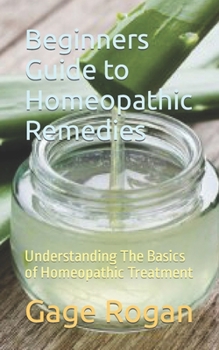Beginners Guide to Homeopathic Remedies: Understanding The Basics of Homeopathic Treatment
Beginners Guide to Homeopathic Remedies The fundamental principle of homeopathy is that "less is more." Homeopathic remedies are prepared using a process of potentization, which involves serial dilution and succussion (vigorous shaking). This process is believed to enhance the healing properties of the substances while minimizing any potential toxicity. The remedies are derived from various sources, including plants, minerals, animals, and even disease products, which are then diluted to extremely minute concentrations. Homeopathy operates on the principle that the human body has an inherent ability to heal itself, and illness is viewed as an imbalance or disturbance in the vital force, also known as the life force or energy that sustains life. Homeopathic remedies are selected based on the concept of "individualization," wherein each person is considered unique and is treated with a remedy that matches their specific symptoms, temperament, and overall constitution. Unlike conventional medicine, where large quantities of drugs are administered to directly suppress symptoms or eradicate pathogens, homeopathy seeks to stimulate the body's vital force to initiate the healing process. Today, homeopathy remains a subject of debate and controversy within the medical community. While many people report positive experiences with homeopathic remedies, critics argue that its principles and mechanisms of action are not supported by scientific evidence. Nevertheless, homeopathy continues to be a popular choice for individuals seeking a more holistic and individualized approach to health and healing. TO CONTINUE READING, GRAB YOUR COPY NOW
Format:Paperback
Language:English
ISBN:B0CDNJ657J
ISBN13:9798856094243
Release Date:August 2023
Publisher:Independently Published
Length:106 Pages
Weight:0.25 lbs.
Dimensions:0.2" x 5.0" x 8.0"
Customer Reviews
0 rating





